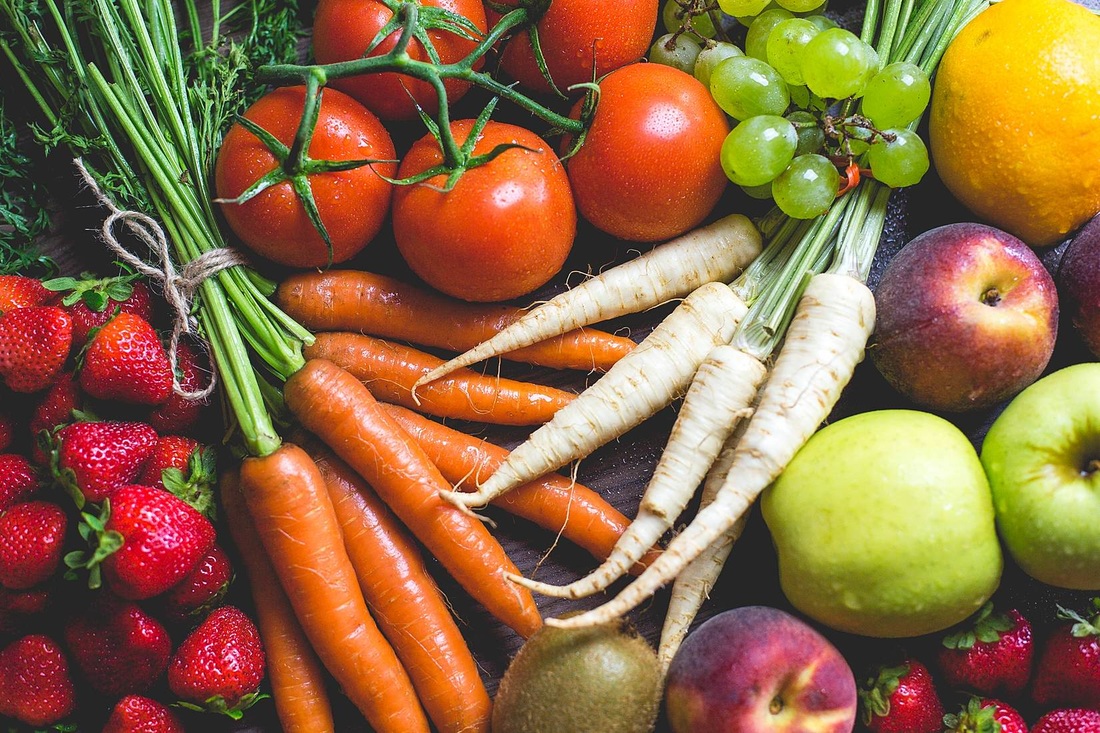|
Jenelle Croatto APD
Nutritional science is continually learning of the relationship between a typically Western diet and chronic low-grade inflammation “metaflammation” in the body. While diet induced inflammation may not be a direct cause, it does appear to underlie many chronic diseases such as obesity, heart disease and Type 2 Diabetes. And now, there is emerging evidence to suggest nutrition plays an important role in chronic pain conditions such as fibromyalgia and inflammatory arthritis by having a direct impact on the nervous, immune and/or endocrine (hormone) systems. It’s only in the last 50 years that we have seen a dramatic rise in the occurrence of many lifestyles diseases and unfortunately this is directly related to the modern world. What’s wrong with modern times? Simply, we’re more sedentary, we consume more processed foods, are overstressed and many of us are sleep deprived. Sadly, it’s not hard to see how the modern world can easily bring about an inflammatory lifestyle. So, to better manage pain and become a healthier you, let’s take a look at four ways nutrition can calm, rather than fuel inflammation. Omega-3 Fats Naturally found in oily fish, walnuts, linseeds (flaxseed) and chia seeds, omega-3 fats are not only great for your heart health, they also have powerful anti-inflammatory properties. In fact, studies looking at rheumatoid arthritis have shown that a diet rich in omega-3 fats can significantly reduce pain and the need for anti-inflammatory medications! Limit Refined Carbohydrates Carbohydrates are the body’s primary source of fuel and are essential for a balanced diet. The problem lies in the consumption of too many processed carbs, which when digested are rapidly converted to blood glucose. This leads to a spike in insulin and in turn contributes to inflammation. The body thrives on blood glucose for energy; however, it is far better to have steady levels of blood glucose, than big peaks and troughs. So, swap-up the processed ‘white and fluffy’ carbs for slow release ‘smart’ carbs like sweet potato, basmati brown rice, chickpeas and wholegrain bread. Phytonutrients In essence, phytonutrients are natural plant chemicals, of which many exhibit strong antioxidant properties. Phytonutrients go about the body cleaning up harmful free radicals, which when in excess can contribute to disease and illness. Free radicals are also being investigated as a contributor of pain by sensitising the nervous system. To date, scientific studies have found phytonutrients to be of benefit in acute pain, fibromyalgia, period pain and diabetic neuropathy. You can easily up the phytonutrient density of your diet by simply eating more plant foods, but more importantly – include variety! That’s right, kale can’t do it alone, so as the weather warms up enjoy colourful salads, grill veggies on the BBQ, snack on fruit and sip on green tea for an antioxidant boost. Dietary Fibre Fibre really does so much more than keep us ‘regular’. It has the unique ability to lower cholesterol, slow the rise of blood glucose after meals, feed healthy gut bacteria, protect against colon cancer and even reduce inflammation! As intestinal bacteria feed on dietary fibre they produce a digestive by-product known as butyrate, which not only benefits digestive health but also positively influences the immune system. The benefits of butyrate even go beyond the gut by exerting an anti-inflammatory effect throughout the body. You can easily boost the fibre in your diet by making a few simple swaps. Opt for whole fruit instead of juice, wholegrain bread instead of white and when making a hearty casserole toss in a can of chickpeas. A few surprisingly high fibre foods include avocado, raspberries, artichoke, figs, barley and psyllium husk.
0 Comments
By Jenelle Croatto APD
I want you to really think about this – why do you eat? While there is the obvious answer that we eat to satisfy hunger, food and particularly the act of sharing food goes well beyond our biological need for nourishment. Rather than simply being fuel for our survival, food is the glue that brings people together and adds colour to mankind’s array of culture. Both the sharing and offering of food, no matter how frugal it may be, evokes a universal sense of warmth, acceptance and belonging. Whether this is a simple family meal, a celebratory event or perhaps a romantic date, food sets the scene for meaningful conversation and is entwined with our most cherished memories. In today’s diet obsessed culture, I fear our connection with food is fading. While we may enjoy the experience of eating, too often we overthink each morsel of food that passes our lips, perhaps wondering whether we have consumed too many calories or overdone the carbs. On the flip side, perhaps we’re not giving enough attention to our food and the joy of eating – which is often the case if we park ourselves in front of the television (or computer) and mindlessly eat our meal. As a dietitian, I take great interest in what, why and how we choose to eat. Whether our disconnect with food stems from our perception (or reality) of being too busy to enjoy a meal, or is a result of nutrition confusion (and there is plenty of that!), there is much we can do to reconnect with food. Here are my suggestions – Start you day right by waking 15 minutes earlier to sit down and eat breakfast. Not only will you have time to eat a nourishing meal, you’ll also gain some extra time to gather your thoughts and organise your day. Realise that fad dieting is like holding your breath – you can only do it for so long before you need to breathe! No matter what dietary fad gains popularity, please know that healthy eating does NOT require you to give up your favourite foods, adhere to a restrictive eating plan or cut out entire food groups. Eat balanced meals, eat when you’re hungry and know that an occasional treat won’t derail your good work – it’s just not possible! Remember that it is what we chose to do consistently that makes the difference to our weight, health and overall wellbeing. Make it a health priority to literally ‘switch-off’ and eat your lunch away from your computer, smart phone or television. Whether you chose to eat your lunch at a table or sitting on a park bench, allow yourself a few moments to eat your lunch in a relaxed manner. Do so, and you may discover you’re satisfied with less food and you’re mentally recharged for the afternoon. Be inspired by seasonal, local produce by taking a trip to your local Farmers Market. Knowing that I’m supporting local business and buying produce with a low food mileage that is typically organic, I can’t help but get the ‘feel-goods’ when I visit the markets. |
News FEEDFitness, Energy, Education & Diet Archives
June 2020
Categories
All
|


 RSS Feed
RSS Feed